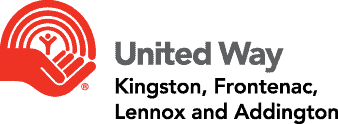Youth supporting youth:
Peer Support Program aims to help young people in KFL&A
A few years ago, United Way Kingston, Frontenac Lennox and Addington embarked on a mission to address youth homelessness in the area. At the time, young people accounted for one in five of the people living in Canada’s homeless shelters, but the number was even higher in Kingston at one in three.
After consultations and with input from youth with lived experience, the implementation of prevention programs and community collaborations, that number returned to the national average in Kingston. But the work doesn’t stop there.
Taking the comments and advice from youth to heart, United Way KFL&A and Kingston Health Sciences Centre recognized that mental health and mental health services for youth needed to be evaluated and addressed in the region. This resulted in two Youth Mental Health Services Planning Days and the creation of a special youth mental health committee. The committee included broad representation from the community, including youth, psychiatrists, health-care providers, psychologists, agencies working with youth, addictions and mental health services, educators, community members, police and emergency physicians.
Through conversations and discussions, the committee learned of multiple challenges youth in crisis often face when they are discharged from hospital or other treatment facilities with few supports. Youth members of the committee indicated that having a peer walk with them through this experience would be a tremendous help during the transition and with that, the Youth Peer Support Program was initiated.
While there are peer support programs for adults, this community-based program is new for youth in the region. A youth engagement coordinator was hired by United Way to research other models and recommend one that would work here. A community advisory committee, made up of professionals from Maltby, Resolve, AMHS-KFL&A, One Roof, Youth Diversion, designed and worked with the coordinator to develop this program. This past summer a Youth Program Facilitator was hired by Resolve, with financial support from United Way.
“The Facilitator is working with youth and agencies to really develop a model that works for our community,” explained Tara Everitt, Director of Community Services at Resolve. “We want young people to know they are not alone. We want to help support them to build hope. It is youth supporting youth. The hope is that in building these relationships we can connect them to services, whether that be mental health support, counselling supports, addictions supports or whatever they need and what they are going through, but do it in a way that works best for them.”
The program will work with youth ages 16- 24 that will be referred to the program; this is also unique to the Kingston program as referrals will come from three to four agencies serving youth instead of just one, as is the case in many peer support models. Youth seeking support will be then be matched with trained peers, Youth Ambassadors, with lived experience over the age of 18.
“Taking a page from the successful Peer-to-peer support model that has been an essential component for adult mental health and substance use health recovery, we now have the same option for youth in transition in Kingston,” explained Shawn Quigley, Executive Direction of Youth Diversion. “Ensuring that young people have at least one adult ally in their life has proved to mitigate the impact of early childhood trauma, builds reliance, and furthers engagement opportunities for youth who are facing barriers such as homelessness, mental health, and addictions. Who better to walk beside during your journey than someone who has already walked the pathway.”
While the Peer Support Program was being developed, United Way KFL&A sought additional funding to develop and run the program, including paying for training and the positions of Youth Facilitator and Youth Ambassadors. Thanks to generous grants from program has been able to get off the ground. The first grant is from Yupi.ca Inc and is in line with their commitment to fostering community development based on four social concerns: food, mental health, education and housing. The second grant is from the RBC Foundation, which has generously supported United Way KFL&A through similar grants since 2018 and is in line with their 10-year commitment to help empower youth for the jobs of tomorrow.
“United Way has supported this program both by being the leaders in getting the community partners around the table to have these conversations and as part of their work on youth homelessness,” added Everitt. “But in addition to that they are funding 100 per cent of the project thanks to these generous grants and the amazing support of the community.”
The hope is that after the initial development of the program and pilot period over the next year, the program can expand further to include more youth and agencies in the community and continue to provide prevention support for youth in the region, continuing to work towards the goal of ending youth homelessness in the region.
For more information about United Way KFL&A’s Collective Impact work on Youth Homelessness visit www.unitedwaykfla.ca/youth
United Way of KFL&A would like to acknowledge this traditional territory’s longer existence and its significance for the Indigenous people who lived and continue to live on Turtle Island.
We are situated on traditional Anishinaabe, Haudenosaunee and Huron-Wendat land. There are Métis and other non-status First People from many Indigenous Nations present in our community today. This acknowledgement symbolizes the United Way KFL&A’s first step, of many, along this path toward Indigenous reconciliation, in a respectful manner.
"*" indicates required fields

